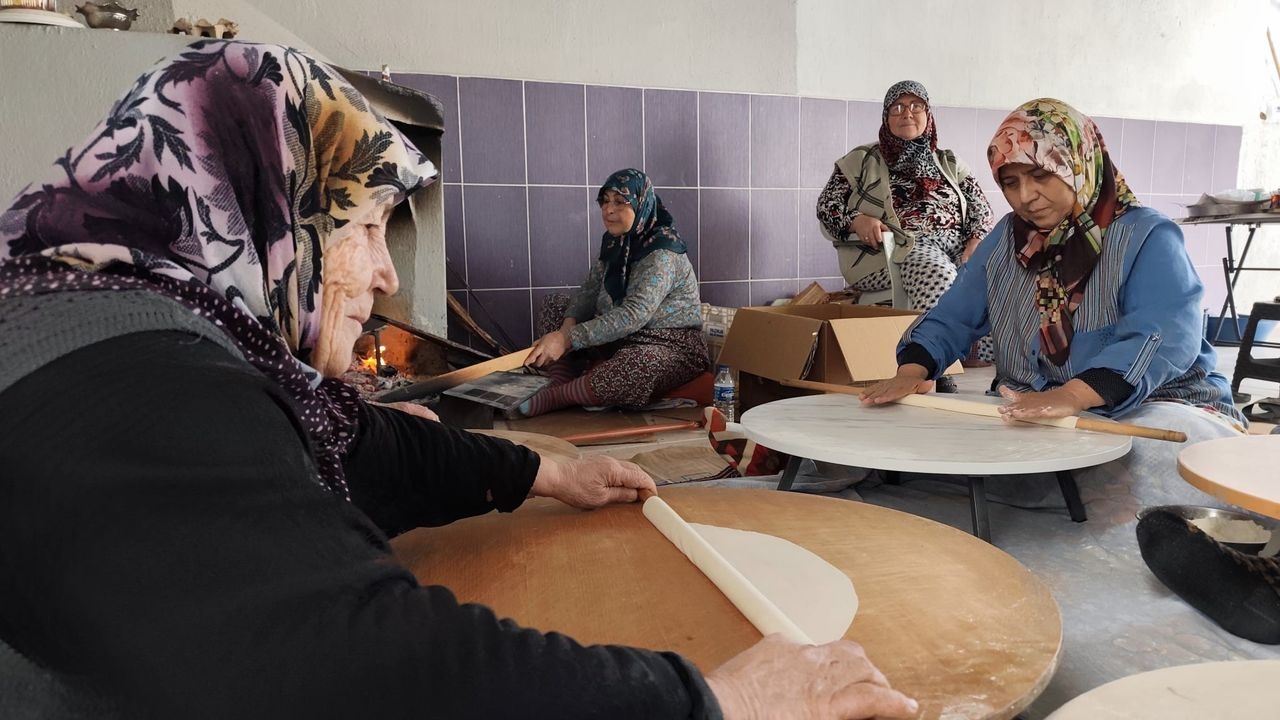In Manisa, 11 women have been making yufka in the same garden for 50 years!

Eleven childhood friends living in the Karaoğlanlı neighborhood of Manisa's Şehzadeler district have been continuing their tradition of rolling out yufka (a type of flatbread) together for 50 years. Gathering every autumn, the women cook yufka over a wood fire for both their families and their children.
MEETING POINT: ŞÜKRİYE PEKCAN'S GARDENŞükriye Pekcan's house, with its large garden in the neighborhood, provides a suitable setting and has been the venue for this traditional gathering for years. The women make their preparations there every year and work together throughout the day.
Homeowner Şükriye Pekcan explained this long-standing tradition: "In recent years, we've been gathering in our garden to prepare our winter yufka rolls because it's more convenient. My girlfriends Sevim Eken, Fikriye Sabancı, Ayşen Eken, Fadime Kaplangil, Fatma Borucu, Sebiha İnan, Nebahat Sabancı, Ayşe Altıparmak, Emine İnan, and Ayşe Bayraktar have been continuing our tradition of rolling out yufka collectively for over 50 years. We continue to keep this centuries-old tradition, inherited from our mothers and grandmothers, alive."
The women prepare the dough by kneading 25 kilograms of flour the night before. When they gather in the morning, they divide the work and begin working. Nebahat Sabancı explained the collaborative work: “We gather in the garden in the morning, divide the work among ourselves, divide the dough into pieces, and begin rolling out the phyllo dough. We can't all roll it at the same time; six or seven people roll the phyllo dough at once, while one person cooks the dough over a wood fire. Another person stacks it in boxes. If someone gets tired, we switch places with the person waiting on the sidelines. Those waiting on the sidelines also take on the task of preparing tea and coffee.”
“WE HAVE BEEN KEEPING OUR CENTURY-OLD TRADITION ALIVE FOR MORE THAN 50 YEARS”This tradition, carried on for years, has become not just a culinary preparation but also a bond of friendship. During these collaborative days, women commemorate the past and maintain traditional solidarity.
“WE ARE THE LAST GENERATION TO CONTINUE THE TRADITION”Sebiha İnan, the oldest member of the team at 78, described the preparations they've been making since childhood: "We learned this from our mothers. I prepare for both my children and myself. We prepare all the winter food. We dry peppers and tomatoes and bottle them. We made our tarhana. Now, the last thing we do is prepare yufka (a type of flatbread). We do this before the cold sets. We used to make it around Ramadan, but now it's in the winter. It gets so cold, it's unbearable in the garden, out in the open. I'm the oldest member of the team. I've had surgery on my leg, but I can work from home."
“THE NEW GENERATION DOES NOT CARE ABOUT THESE TRADITIONS”One of the women, Ayşe Altıparmak, expressed concern about the future of the tradition: “I used to do it with my mother since I was a child, and now we continue it. But we don't know who will do it after us. The new generation doesn't care much about these traditions.”
THEY ARE DOING THEIR BEST TO MAKE IT NOT BE FORGOTTENThe local women continue to gather every year to keep the tradition of rolling out yufka (a type of flatbread) alive. They complete their winter preparations and rekindle long-standing friendships. But they all share the same concern: Will this tradition continue after they're gone?
Source: IHA
Egetelgraf





